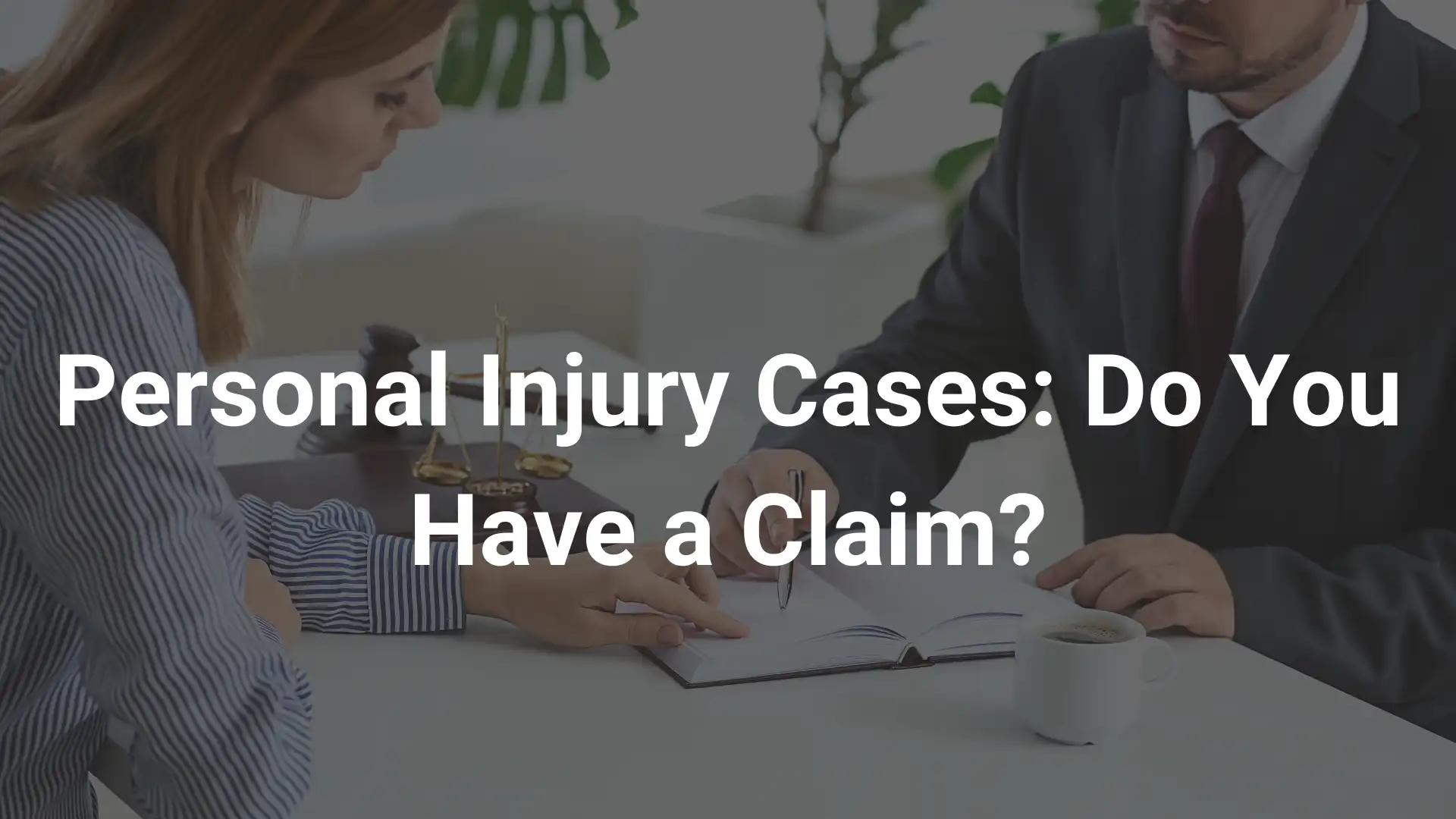 If you’ve been hurt in an accident, the big question on your mind is probably: “Do I have a personal injury case?” It’s a fair question—and one we hear a lot. Accidents happen fast, and in the middle of dealing with pain, doctor appointments, and maybe even missing work, it’s hard to know whether your situation is something a lawyer can help with.
If you’ve been hurt in an accident, the big question on your mind is probably: “Do I have a personal injury case?” It’s a fair question—and one we hear a lot. Accidents happen fast, and in the middle of dealing with pain, doctor appointments, and maybe even missing work, it’s hard to know whether your situation is something a lawyer can help with.
The truth? Not every injury leads to a lawsuit. But many do. You don’t need to know all the legal rules off the top of your head. What matters is figuring out whether someone else is legally responsible for what happened—and whether it makes sense to move forward.
Let’s break it down and talk through what makes a case strong, what can weaken it, and what to do if you think you might have a claim but aren’t sure.
Key Factors That Determine If You Have a Case
Most personal injury lawsuits come down to one word: negligence. Did someone mess up and cause you to get hurt? If the answer is yes, then there’s a good chance you have a case worth talking about.
Here are a few things that lawyers (and insurance companies) look at first:
Was someone else at fault?
This is the most significant piece of the puzzle. You’ll need to show that another person or company did something careless—or failed to do something—and that caused your injury. This could be anything from a distracted driver running a red light to a business that didn’t clean up a spill.
Were you actually injured?
It sounds obvious, but you’d be surprised how many people try to file claims without real, documented injuries. If you weren’t hurt or didn’t go to the doctor, the chances of a solid injury settlement are low. But if you’ve had to deal with medical expenses, missed work, or are still in pain? Now we’re talking.
Do you have evidence?
Photos, videos, witness statements, medical records, and police reports all matter here. The more you have, the stronger your liability determination will be. It’s not enough to say, “I was hurt.” You have to back it up.
Are you within the deadline?
In California, the statute of limitations for personal injury cases is usually two years from the date of the injury. That might sound like a lot of time, but it can sneak up on you. Miss that window, and your chance to file a lawsuit could be gone.
Talking to a personal injury lawyer can help clarify things if you’re unsure about your situation. A free consultation lets you ask questions and get clarity—no pressure involved.
Common Reasons a Case Might Be Weak
Not every situation becomes a strong personal injury case, even if you’re hurt. Here are a few reasons your claim might be more challenging to pursue:
You share the blame
California uses comparative fault, so if you were partly to blame, your compensation could be reduced. If you were mostly at fault, you might not have a case at all.
You didn’t get medical care right away
If you waited to see a doctor, the insurance company may doubt your injury and use that against you.
Losses are small
Let’s say you scraped your arm and missed one day of work. That’s not nothing—but it’s also probably not worth filing a lawsuit over. Most personal injury lawyers work on a contingency fee, meaning they only get paid if you win. So they’re going to look for cases with noteworthy losses.
There’s no clear proof of fault
If no one saw what happened, or the facts are murky, it can be tough to prove someone else caused your injury. That doesn’t mean you should give up—but it does make things more complicated.
Even tricky cases deserve a closer look—so if you’re unsure, it’s still worth talking to a lawyer who can walk you through your options.
What to Do If You Think You Have a Case
Maybe you’re reading this and thinking, “Okay, this might be something.” If that’s the case, here’s what you should do:
Get medical treatment (even if it feels minor)
Get medical care right away. It protects your health and creates records you’ll need if you seek compensation.
Document everything
Take photos of your injuries, if you can, the scene of the accident, damaged vehicles, torn clothes—whatever makes sense. Write down what happened as soon as you can. These details fade fast, and having them written out can make a huge difference.
Don’t deal with insurance alone
That nice-sounding insurance adjuster? They’re not your friend. Their job is to save money for their company—not look out for you. Before you give a statement or sign anything, talk to a lawyer who handles insurance claims regularly.
Talk to a local personal injury attorney
The earlier you get a lawyer involved, the better. They’ll help you figure out whether your case is solid, what kind of compensation you might be able to collect, and how to move forward. If you’re in Huntington Beach or nearby, DJA Injury Attorneys is here to help.
Taking these steps now can make a huge difference later—especially if things get complicated. The sooner you act, the more control you have over this.
What You Might Be Compensated For

When You’re Ready to Take Action
If you’re still asking yourself, “Do I have a personal injury case?”—you don’t have to guess. Accidents are overwhelming, and knowing whether your situation is legally actionable shouldn’t fall entirely on your shoulders. That’s what we’re here for.
The Huntington Beach personal injury attorneys of DJA Injury Attorneys have helped people get real answers after injuries. Whether it’s a car crash, slip and fall, or something else entirely, we can walk you through what a case might look like, what challenges might pop up, and what it’ll take to move forward.
Call our law firm at (949) 229-7228 or visit our contact page to get started.
Related Posts
Understanding Personal Injury Claims in California
What to Do After an Injury: Protecting Your Rights & Maximizing Compensation
